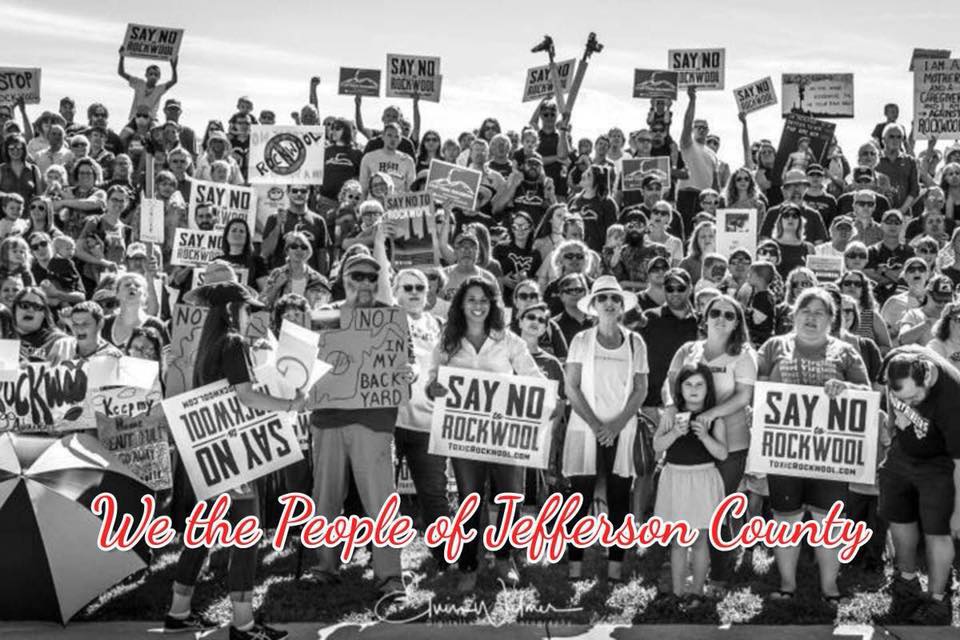Following a year-long investigation, Denmark’s Mediation and Complaints-Handling Institution for Responsible Business Conduct (NCP Denmark) has determined that Rockwool International and its North American subsidiary failed to comply with well-established international guidelines in the planning and construction of its factory in Jefferson County, West Virginia.
The ruling appears to mark the first time that a challenge brought under these international guidelines has resulted in a final ruling against a multinational corporation for non-compliance while operating in the United States.
While the ruling has no direct legal or regulatory consequences, Rockwool has a year to address its deficiencies and demonstrate to NCP Denmark, a quasi-governmental institution, that it will comply with these international standards for proper corporate behavior.
The ruling from NCP Denmark comes in response to a complaint submitted in October 2019 by a coalition of community organizations and government officials in West Virginia and the surrounding region.
The groups provided extensive evidence that Rockwool violated the Organization for Economic Co-operation and Development’s (OECD) Guidelines for Multinational Enterprises.
Established in 1976, the OECD Guidelines are the only multilaterally agreed and comprehensive code of responsible business conduct, which nearly 40 countries – including Denmark and the United States – have committed to promoting.
NCP Denmark specifically pointed to two key deficiencies in the planning and construction of the West Virginia factory:
Risk assessment: NCP Denmark found that Rockwool’s actions “were based on a transactional due diligence approach and thereby too narrowly focused on risks to the company itself rather than identifying potential adverse impacts on people, the environment, and society in accordance with the OECD Guidelines.”
Community engagement: NCP Denmark criticized Rockwool’s community engagement, stating that the company did not provide “meaningful opportunities for the relevant stakeholders to express their views during the planning and decision-making process of the manufacturing facility project.”
The findings come after Rockwool denied accusations of wrongdoing for nearly two years and declined to engage in mediation that was offered by NCP Denmark.
Local community groups have repeatedly raised concerns about Rockwool’s poor siting of the factory. The major industrial facility is located just 2,500 feet from an elementary school and within a 2-mile radius of nearly one-third of the county’s school-aged population.
The factory is also located on fragile karst topography with dozens of sinkholes forming since the start of construction. The location creates acute risks to the nearby Potomac and Shenandoah Rivers and the larger Chesapeake Bay watershed, as well as to the local drinking water supply.
“We are grateful for NCP Denmark’s diligence in reviewing Rockwool’s business practices in West Virginia, and yet we remain concerned that a group of Americans had to appeal to a foreign body to obtain a measure of oversight and accountability,” said Rod Snyder, chair of West Virginians for Sustainable Development. “Even as the factory begins operations, our community will redouble its efforts to ensure Rockwool addresses its abysmal approach to risk assessment and stakeholder engagement, and we also intend to challenge state and local officials for turning a blind eye to the company’s substandard practices.”
NCP Denmark is a non-judicial institution that enables companies, organizations, and public authorities to resolve disagreements regarding infringements of human rights, international environmental standards, or corruption.
The Danish agency will publish an additional report within one year to review whether Rockwool has corrected its non-compliance with the OECD Guidelines.
The complaint to NCP Denmark was co-signed by West Virginia Delegate John Doyle, Jefferson County Commissioner Jane Tabb, Leesburg Town Council Member Neil Steinberg, former West Virginia Delegate Sammi Brown, former Jefferson County Commissioner Ralph Lorenzetti, Friends of the Blue Ridge Mountains, Mid-Atlantic Center for Children’s Health and the Environment, Ohio Valley Environmental Coalition, Potomac Riverkeeper Network, Potomac Valley Audubon Society, West Virginia Citizen Action Group, West Virginia Interfaith Power & Light, and West Virginians for Sustainable Development.
In total, more than thirty community organizations and municipalities have formally opposed the Rockwool factory in Ranson since its groundbreaking in the summer of 2018.

